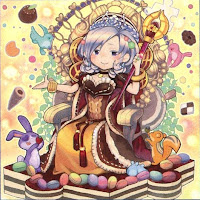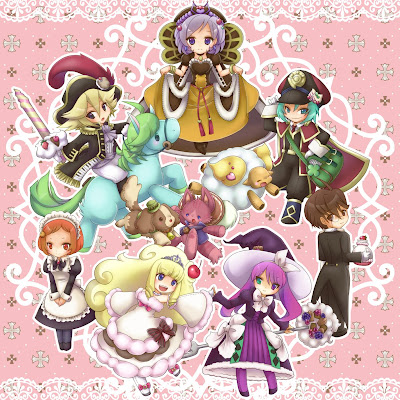This article is going to be about something that almost everyone understands on some level, but that is almost never clearly explained to new players. Everyone has understood these things implicitly for so long that they assume everyone else does as well. I'm going to talk about the (obvious) math of why it's better to use Heavy Storm on more than one card, and the reasons why people will use it against a single card anyways. I am going to talk about the mindset and thought processes that win games, the theory and ideology of competitive Yugioh.
Yugioh is, at its core, a numbers game. If your hand and field have a higher quantity and quality of numbers compared to your opponent, something is obviously going well. When a certain special number makes it from 8000 all the way to 0, the duel is over.
Every number in Yugioh is important, because they all help towards lowering that most important number to 0, but some numbers are more important and have a stronger influence on the duel than other numbers. To demonstrate which numbers are more important, let's create a hypothetical scenario where, at the end of Player A's turn, Player A has a lone Magic Cylinder and Player B has absolutely no cards at all. Player B starts their turn and draws Green Gadget. Player B is obviously going to Normal Summon Green Gadget, and use its effect to search for a Red Gadget. Player B attacks, and Player A flips up Magic Cylinder. That's the end of the scenario. Really? Yes, and there's actually quite a lot going on.
The most obvious thing is that Player A protected their own Life Points and damaged Player B's Life Points. If Player B has 1400 Life Points or less at the start of the scenario, Player A just won the duel. If Player B has more than 1400 Life Points before Magic Cylinder though, they now have a monster on the field which can each deal damage next turn, plus another card in hand. Further, Player A is now the one with no cards. Next turn, not only will Green Gadget be able to make up the 1400 difference that Magic Cylinder created, but Red Gadget will also be able to put Player B ahead by 1300 Life Points. Red Gadget will also search a Yellow Gadget, so in addition to drawing at the start of their turn Player B will have four cards compared to Player A's one. Even if Player A draws something that can deal with one (or even two) monsters, Player B is two or three cards ahead and is clearly about to turn the game in their favour.
That first situation is a bit drastic, but it gets the point across. Player B could have Sabersaurus, Thunder King Rai-Oh, Brotherhood of the Fire Fist - Bear, Atlantean Dragoons, any monster worth attacking with, and the situation is the same. If Player A does not win with Magic Cylinder, the problem is delayed instead of solved. For the most part, having an advantage over your opponent in terms of total cards is better than having advantage in terms of total Life Points.
That is the core principle of competitive Yugioh: Card advantage. Every decision in a tournament setting is made with the understanding that having and maintining more cards (and by extension more options and versatility) than your opponent is the oldest and most reliable strategy to win. I'll end this article by explaining some of the phrases that come up frequently when discussing card advantage.
Anything that causes you to have more cards than your opponent is called a relative (or net) plus (+1, +2, etc.).
Anything that causes you to have less cards than your opponent is called a relative (or net) minus (-1, -2, etc.).
There are a few ways to describe situations that cause no relative change in card advantage. Most of the time I refer to these situations as a net 0 (some people also say +0 or -0), and people also call them one for one exchanges (not to be confused with the card One for One).
Read more...
That is the core principle of competitive Yugioh: Card advantage. Every decision in a tournament setting is made with the understanding that having and maintining more cards (and by extension more options and versatility) than your opponent is the oldest and most reliable strategy to win. I'll end this article by explaining some of the phrases that come up frequently when discussing card advantage.
Anything that causes you to have more cards than your opponent is called a relative (or net) plus (+1, +2, etc.).
Anything that causes you to have less cards than your opponent is called a relative (or net) minus (-1, -2, etc.).
There are a few ways to describe situations that cause no relative change in card advantage. Most of the time I refer to these situations as a net 0 (some people also say +0 or -0), and people also call them one for one exchanges (not to be confused with the card One for One).


















